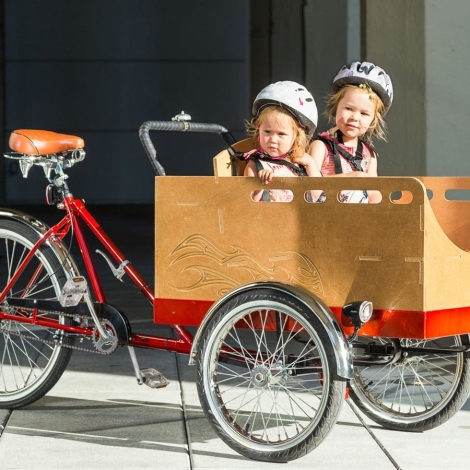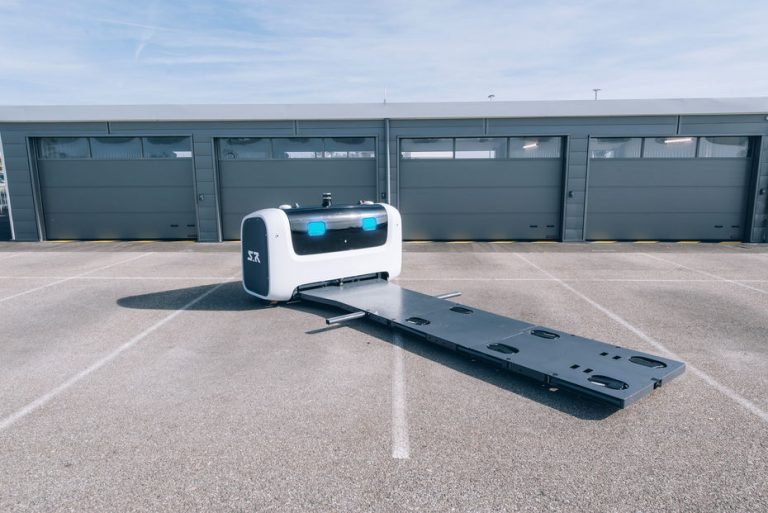[Maggie Waggie is one of E4C’s Promising Prototypes to Watch in 2018]
Jason Neal and Edrie Ortega converted a salvaged 1979 Worksmen tricycle into a pedal-powered child transport and cargo carrier they call the Maggie Waggie. The two are colleagues at Mr. Neal’s Baltimore, Maryland-based architecture and industrial firm, J. Neal Design. Maggie Waggie, named for Mr. Neal’s oldest daughter, solves problems in parking, exercise and fun deficits on Baltimore’s streets.
The prototype builds on the Worksmen frame and adds a box equipped with padded bench and kids’ seatbelts. The box fits together with joints that can be pressed into place by hand, with no need for fasteners. It is constructed of Forest Stewardship Council-certifed medium-density fiberboard (FSC-certified MDF) treated with Extira for eco-friendly moisture and insect resistance.
“The bike has always been a combination of utilitarian-ness that is scalable, and meets needs,” Mr. Neal says. “We also want it to look awesome. Most aspects of a bike are functional. But we approach design for these the same way we approach our architecture. We want people to acknowledge that design makes your life better.”
The prototype takes its name from one of its first child passengers, but Maggie Waggie is not strictly for carting kids. Ms. Ortega sees it as a cargo and delivery vehicle, as well.
“Around the world, we see tricycles used really for businesses as delivering things, so to be [among] the first ones in Baltimore to create this, it’s kind of a big step for this area,” Ms. Ortega says. “I’ve traveled in a lot of places and there’s a lot of tricycle bikes that people use in the Philippines [for example], that they stack 10 feet tall with goods and travel across the country and deliver things. I always saw cargo bikes as a tool in other places, not so much for family. It’s business.”
The pair met while doing business at a Baltimore makerspace called OpenWorks. The space serves a diverse crowd of startups, half of which are run by women and more than half by racial minorities. Mr. Neal and Ms. Ortega were part of the first startup cohort.
The city’s lack of parking had become a nuisance, and Mr. Neal saw a chance design a solution, something that could help him feel more integrated with his adopted city. The city is already responding. A community organizer may buy five Maggie Waggies for local teenagers to use in small delivery businesses, taking groceries to the elderly, for example, Mr. Neal says.
“The other applications we’re looking at are wide open. We want other people to come to us with ideas, so we can work with them. We want people to engage and tell us what function it needs to have. Then they have ownership,” Mr. Neal says.

